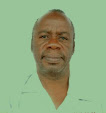Zesco Ltd. recently put up a proposal to the Energy Regulation Board (ERB) to increase electricity tariifs by an average of 36%.
The reason given for the proposed increment is that there is a need for the company to raise capital for construction of new hydropower stations. This is to alleviate a serious power deficiency in the country.
Hydro Electric power stations have been the traditional source of electrical energy, which accounts for nearly all of the nation's soure of electricity.
The country is already experiencing a critical shortage of electrical energy, which has resulted in increased load shedding across the country in recent years. This is due to an increase in demand of electrical power, brought about by the incoming of new industries, mainly mines, in recent years.
The country has experienced two major blackouts in the last few years as a result of inadequate generating capacity.
Aging equipment of the nation's Hydropower stations is another factor that has contributed to the crisis.
A number of the equipment have been in operation for over forty years. Zesco Ltd. is in the process of rehabilitating the equipment and this calls for more money .
In order to supplement the Zesco effort of improving the reliability of the electrical supply, and to cushion the effect of increased electricity tariff charges, it has become necessary to look at alternative sources of energy.
One of these is solar energy.
In Africa there is an abundant supply of sunshine for most of the time during the year. The use of solar power is therefore an attractive alternative.
Solar energy can be utilized in two forms
1) Converting the solar energy into electrical energy by use of solar panels and storing it in batteries in form of DC power. The DC is then converted to AC mains by use of Inverters.
The initial capital cost for installation of solar panels to produce electricity is higher than that of hydroelectric systems.
With advancement of technology, the installation cost is steadily decreasing.
2) Direct use of the heat from the sun for water heating and cooking.
The former method is becoming common in the country, whereas the latter is not.
The method of using solar power to create heat, can be used to supplement the solar panel system. This method is technologically less demanding than the solar panel method.
A number of companies which deal in selling and installing Solar Energy equipment do exist in Zambia.
However, the business is still in its infancy.
Local companies in Zambia should be encouraged to invest more into this business, as is the case in the USA and other western countries.
References : -
1) Making and using a solar cooker by Joe Radabaugh Issue #30
http://is.gd/cl9ar
2) Solar Cookers International (How Solar Cookers Work)
http://is.gd/cl9ij
3) Solar Oven, Cooker and Dryer Tips and Solar Recipes
http://is.gd/cl9uH
4) Zambia - Solar Cooking Project
http://is.gd/cl9BH
5) Energy Savers: Solar Water Heaters
http://is.gd/clbZ2
6) SolarRoofs.com solar water heating, The Most Cost Effective Way to Go Solar!
http://is.gd/clcYf
7) Solar Water Heating Systems: Solar Hot Water, Solar Water Heaters
http://is.gd/cldhR
8) How to Build a Solar Hot Water System
http://is.gd/cldsm
9) Mr. Solar - Home & RV Solar Panel Systems
http://is.gd/cldFP
10) Mr Solar Energy
http://www.mrsolarenergy.com/
http://is.gd/cldSF
11) Solar Energy Retail Businesses in the World
http://is.gd/clhhT
Subscribe to:
Post Comments (Atom)



No comments:
Post a Comment